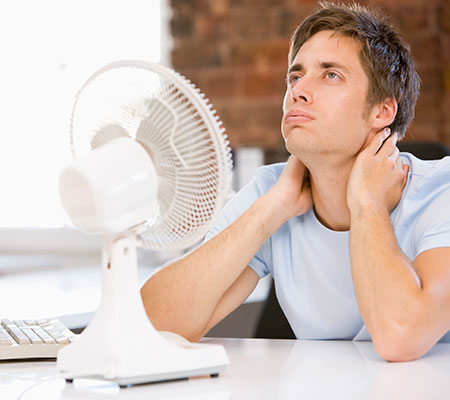
People who don’t sweat need to find other ways to keep cool.
Sweating is an important biological function. It helps keep your body cool when the weather is hot or you are physically exerting yourself, like during exercise. Some people, however, have an inability to sweat normally, a condition known as anhidrosis.
“Sometimes not sweating is inherent, it’s just how you were made,” said Christopher Orgeman, a licensed athletic trainer at Marshfield Clinic. “Sometimes it develops later in life.”
Anhidrosis can be caused by trauma to skin, certain diseases or medications, or even as a side effect of radiation therapy. Some people experience anhidrosis in only small areas of the body while others experience it over larger areas.
“For the most part, as long as most of your body is sweating, not sweating in a small area shouldn’t affect you too much,” Orgeman said.
Signs of overheating
When your body can’t efficiently cool itself, you can overheat. Signs of the body overheating include:
- Cramps
- Nausea
- Dizziness
- Headache
- Elevated body temperature
Keep yourself cool
If you aren’t sweating and you’re overheating, Orgeman suggests lightly misting yourself with a spray bottle of water, using cool towels on your skin, and trying to find shade if you are outside. Taking a dip in a pool or body of water also can help.
Orgeman said as you get older, you tend to sweat less. If you’re concerned, it is possible to get a sweat test.
“You’re coated with a powder that changes color where you sweat,” he said “So you go into a sauna of sorts, and your provider can see where you’re sweating and where you’re not.”
If you have concerns about your level of sweating, talk with your provider.

